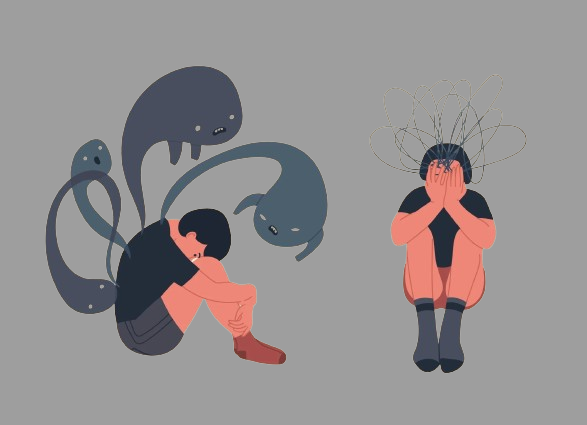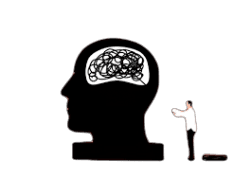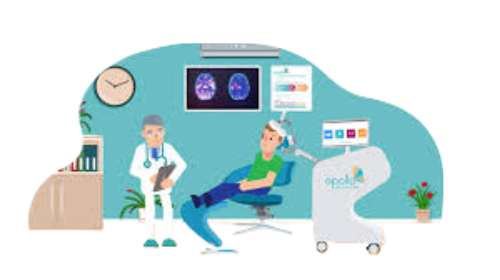Introduction: Understanding Adult ADHD Emotional Dysregulation Symptoms
When most people think about ADHD in adults, they imagine restlessness, difficulty focusing, or being forgetful. But one of the most overlooked aspects of ADHD is emotional dysregulation. Adults living with ADHD often struggle with overwhelming emotions, intense reactions, and difficulty calming down after stressful events. These challenges can feel just as disruptive as inattention or hyperactivity, yet they don’t always get the same level of attention in everyday conversations.
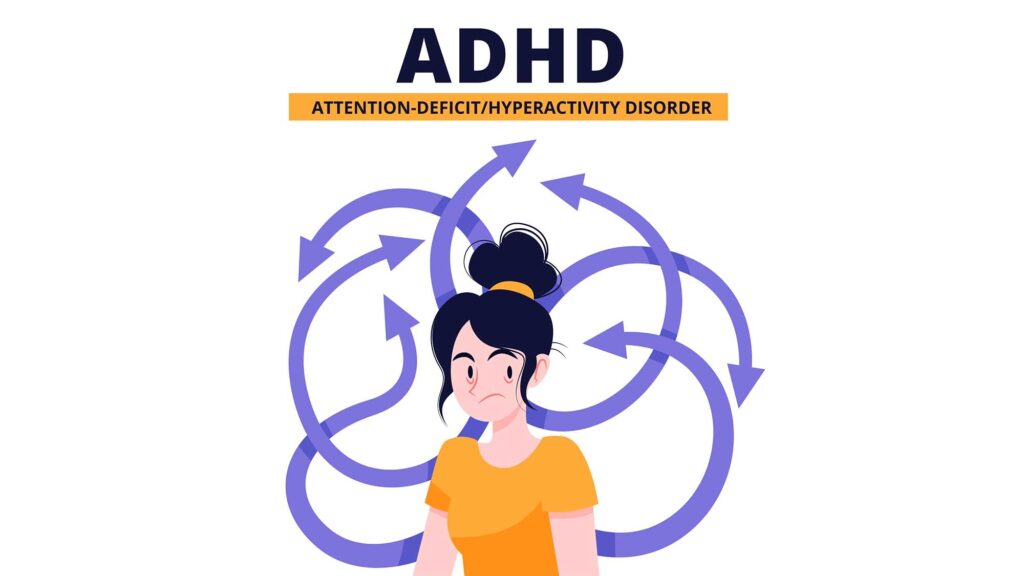
In this article, we’ll take a closer look at adult ADHD emotional dysregulation symptoms, what they look like in daily life, why they happen, and how people can manage them effectively.
What does emotional dysregulation look like in adults with ADHD?
Emotional dysregulation in ADHD doesn’t look the same for everyone, but common signs include:
- Intense anger or frustration over small setbacks (like being cut off in traffic or missing a deadline).
- Crying easily or feeling emotionally “flooded” when stress builds up.
- Difficulty calming down once emotions are triggered—lingering on the same thought or event for hours.
- Overreacting to criticism, rejection, or conflict.
- Mood swings that shift quickly without much warning.
For example, an adult with ADHD may feel extreme irritation when their plans are disrupted, and instead of moving on quickly, they might replay the situation in their head all day. This reaction isn’t about being overly dramatic—it’s rooted in the way the ADHD brain processes emotions.
Do ADHD meds help with emotional regulation?
Medication is one of the most common treatment approaches for ADHD, and many adults wonder if it can also improve emotional regulation. The answer is yes—but with limits.
- Stimulant medications like methylphenidate and amphetamines can help reduce impulsivity and improve focus, which indirectly supports better control over emotional reactions.
- Non-stimulant medications such as atomoxetine may also provide benefits for mood stability.
- However, medication alone isn’t always enough. While meds can take the “edge” off emotional intensity, most adults still need coping strategies, therapy, and lifestyle changes to handle emotions more effectively.
Think of medication as a tool that creates more “mental space,” making it easier to pause before reacting. But it doesn’t automatically teach emotional skills—those must be learned and practiced.
What is emotional dysregulation in adults?
Emotional dysregulation refers to difficulty managing the intensity, duration, and expression of emotions. In adults with ADHD, this often means:
- Emotions feel stronger and more immediate than they might for others.
- Stressful events stick in the mind much longer.
- Small frustrations feel overwhelming.
- Calming down takes much more effort and time.
For adults with ADHD, emotional dysregulation can look like being “too sensitive” or “overly reactive,” but in reality, it’s a neurological difference in how the brain processes dopamine and regulates executive functions.
What is the 24-hour rule for ADHD?
The “24-hour rule” is a simple but powerful coping strategy often recommended for adults with ADHD who struggle with emotional dysregulation. The idea is straightforward:
When you experience a strong emotional reaction—whether it’s anger, embarrassment, or rejection—wait 24 hours before taking action or making a decision.
This pause allows the intensity of the emotion to settle, giving you time to reflect more calmly and prevent impulsive choices that might be regretted later.
For example:
- Instead of firing off an angry email to your boss, draft it and revisit it the next day.
- If you feel rejected by a friend, wait a day before responding, giving yourself space to process feelings.
This rule doesn’t eliminate emotions, but it helps adults with ADHD avoid being “trapped in the moment” and making choices based on heightened feelings.
Why emotional dysregulation is often overlooked in ADHD
There are a few reasons why emotional dysregulation hasn’t always been recognized as a core part of ADHD:
- Focus on childhood ADHD symptoms: Historically, ADHD was studied mainly in children, where hyperactivity and inattention were more visible than emotional issues.
- Stigma around emotions: Adults who express emotions strongly are often labeled as dramatic, sensitive, or “bad at coping,” instead of being understood neurologically.
- Diagnostic frameworks: Emotional dysregulation isn’t listed as one of the main criteria for ADHD in the DSM-5, even though research consistently shows it plays a major role in adult ADHD.
As awareness grows, more clinicians and researchers are recognizing that emotional challenges can be just as impairing as distractibility.
Common triggers of emotional dysregulation in adults with ADHD
Some common triggers include:
- Criticism or rejection (leading to rejection sensitive dysphoria).
- Overwhelm from multitasking or time pressure.
- Conflict in relationships.
- Sudden changes in routine or unexpected events.
- Sensory overload (loud noises, crowded environments).
These triggers often pile up quickly. An adult with ADHD may handle one stressor fairly well, but when two or three happen in a row, emotions can spiral.
Impact of emotional dysregulation on relationships and work life
Emotional dysregulation affects more than just the individual—it impacts relationships, careers, and overall well-being.
- In relationships: Partners may feel like they’re “walking on eggshells” because of unpredictable moods. Small disagreements can turn into major conflicts.
- At work: Impulsive reactions to stress or criticism can harm professional reputation. Difficulty regulating frustration may lead to burnout.
- Self-esteem: Many adults with ADHD blame themselves for being “too emotional,” which can reinforce negative self-perceptions.
Over time, these struggles can make adults with ADHD feel isolated, misunderstood, or ashamed.
Coping strategies and self-help techniques
While emotional dysregulation can feel overwhelming, there are effective strategies that adults with ADHD can use to manage it:
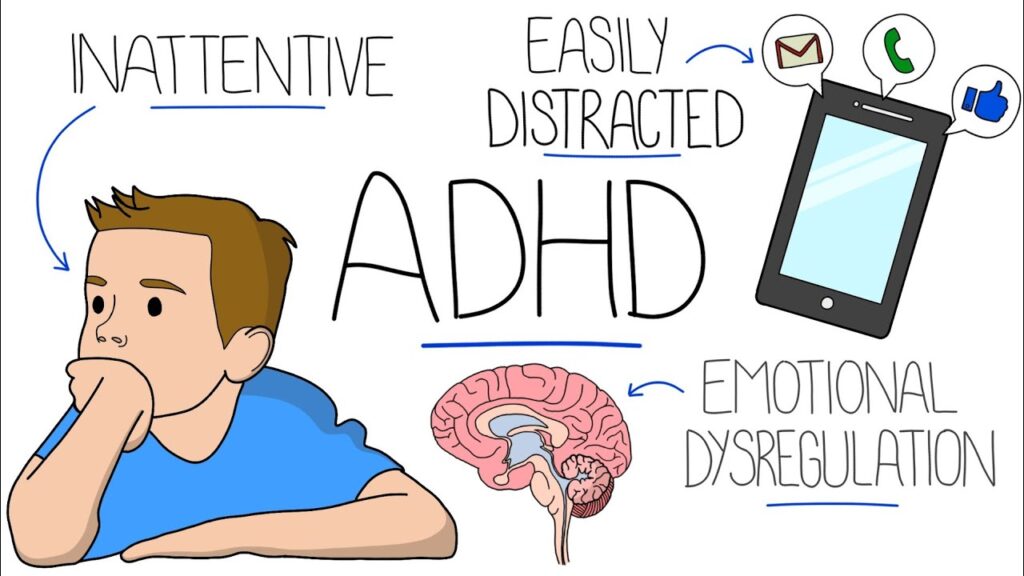
- Mindfulness practices: Learning to observe emotions without reacting right away.
- Breathing techniques: Deep, slow breaths to activate the body’s calming response.
- Journaling: Writing thoughts down instead of letting them spiral in the mind.
- Exercise: Physical activity helps burn off emotional energy and stabilize mood.
- The 24-hour rule: Delay reactions when emotions feel too intense.
Even small steps—like taking a five-minute break when overwhelmed—can make a meaningful difference.
Therapy approaches for managing emotional dysregulation
Professional support is often key in managing emotional challenges related to ADHD. Common therapy approaches include:
- Cognitive Behavioral Therapy (CBT): Helps identify unhelpful thought patterns and replace them with healthier responses.
- Dialectical Behavior Therapy (DBT): Provides tools for emotional regulation, distress tolerance, and mindfulness.
- Coaching for ADHD: Focuses on building practical strategies for daily life, time management, and stress reduction.
Therapy creates a space where adults can learn to understand their emotions, rather than feel controlled by them.
Lifestyle adjustments that can improve emotional balance
Daily habits have a powerful impact on emotional stability. For adults with ADHD, these lifestyle adjustments can help:
- Consistent sleep routine: Lack of sleep worsens impulsivity and irritability.
- Balanced diet: Nutritional support can improve mood regulation.
- Time management tools: Calendars, reminders, and apps reduce stress from forgetfulness.
- Regular exercise: Activities like running, yoga, or even walking support emotional balance.
- Social support: Connecting with friends, support groups, or loved ones provides perspective during difficult times.
These changes don’t eliminate ADHD, but they reduce the emotional “load,” making symptoms more manageable.
Final thoughts: Living with Adult ADHD and building resilience
Living with adult ADHD emotional dysregulation symptoms can be challenging, but it’s important to remember that these struggles are not a personal failure—they are part of how the ADHD brain functions. By combining strategies such as the 24-hour rule, coping techniques, medication, therapy, and lifestyle changes, adults with ADHD can build resilience and regain control over their emotional world.
The journey may not be easy, but with self-awareness and the right tools, it is absolutely possible to live a fulfilling life where emotions feel less overwhelming and more manageable.

